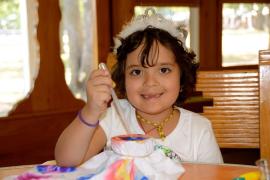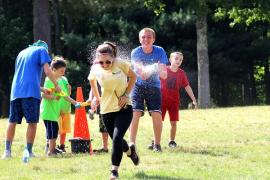‘Tis the season of parents (and caregivers, and other adults-connected-to-children with whom you as a camp professional interact). You’ve likely dealt with parents and caregivers just about every day of this season, but that interaction tends to ramp up toward the end of the summer — especially if you are trying to capture feedback from your parent community through end-of-summer surveys.
I wrote a few weeks ago about an evidence-based hack for segmenting parents into one of four general groups. Each group represents a different reason or motivation for seeking and choosing a camp experience for a child. The four motives for seeking camp experiences we have identified through our ongoing Impact Study research include:
- Camp is the most important thing! Parents believe in the developmental value of camp and prioritize camp over other summer activities. Parents or caregivers in this category have typically been a camper or camp staff member in the past.
- Camp is great, but so are sports and vacations and summer school. Parents who value camp and value other developmental experiences, such as family vacation, sports, music, or summer academic programs.
- Camp sounds fun, let’s try that! Parents in this group are often piecing together a summer schedule that fits their childcare needs and makes for a fun summer for their child. They do not necessarily prioritize camp over other experiences — it’s more about logistics and whether or not their kid has fun.
- Camp? Yeah right. For families in this category, camp is either not a possibility (cost, location, accessibility, cultural relevance), or there are just too many barriers to make it seem worthwhile.
Important note: Even though these four general categories seem to represent the parents in the Impact Study, they might not represent your parent community. You can understand your community best when you ask them — perhaps as a market segmentation project — questions about why and how they seek camp experiences, what they value most in those experiences, and what barriers or challenges they have related to getting their child to camp.
In that post, I introduced a chart that suggested what parents in each of these four categories might need or expect from their child’s camp experience. Again, this is by no means an exhaustive or definitive profile, but it is a handy way to think about different parents and the different things that might cause them to feel satisfied (or not!) in a post-camp survey. In this post, we will go one step further to include some creative ways you might gather feedback from each segment in your end-of-camp survey (and some creative non-survey ways too).
|
Segment & Their Needs |
Possibilities for Great Feedback |
|
Camp is the most important thing!
|
Consider asking as a part of pre-camp enrollment materials:
Post-camp survey:
Get creative!
|
|
Camp is great, but so are sports and vacations and summer school.
|
Consider asking as a part of pre-camp enrollment materials:
Post-camp survey:
Get creative!
|
|
Camp sounds fun, let’s try that!
|
Consider asking as a part of pre-camp enrollment materials:
Post-camp survey:
Get creative!
|
|
Camp? Yeah right.
|
Consider asking as a part of pre-camp enrollment materials:
Post-camp survey:
Get creative!
|
The point here is not to tell you exactly what and how you should be talking with parents; rather, this chart is (hopefully) a way to start thinking about your parents as unique individuals who can probably be described by broad categories. These broad categories (or segments, as marketing people call them) can help you better anticipate parent satisfaction, and, in turn, provide a camp experience that exceeds those expectations. The result? Parent feedback that is actually useful, and parents who are inclined to enroll their child at camp next summer, and, ideally, excited to tell everyone they know.
Bottom line: Every parent you serve is a unique individual with a unique set of needs and expectations. Asking parents basic questions about their satisfaction with various aspects of camp is difficult because of the very individual nature of satisfaction. And while we do not want to lose sight of the unique needs of our parents/caregivers and their children, it can be difficult to ask about and meet the needs of every individual you serve. Basic segmentation — using the four parent-motives I’ve shared here, or some other system developed for your community — is a powerful way you can acknowledge individual differences while still gathering feedback that you can use.
How are you going to get great feedback from your parents and caregivers? Perhaps try one small or new thing yet this season, or use this post as a way to think about your (ack!) summer 2020 pre-camp planning.
Until then, happy evaluating!
Laurie Browne, PhD, is the director of research at ACA. She specializes in ACA's Youth Outcomes Battery and supporting camps in their research and evaluation efforts. Prior to joining ACA, Laurie was an assistant professor in the Department of Recreation, Hospitality, and Parks Management at California State University-Chico. Laurie received her PhD from the University of Utah, where she studied youth development and research methods.
Thanks to our research partner, Redwoods.
Additional thanks goes to our research supporter, Chaco.
Photo courtesy of Beth Sholom Day Camp in Roslyn Heights, NY
The views and opinions expressed by contributors are their own and do not necessarily reflect the views of the American Camp Association or ACA employees.





